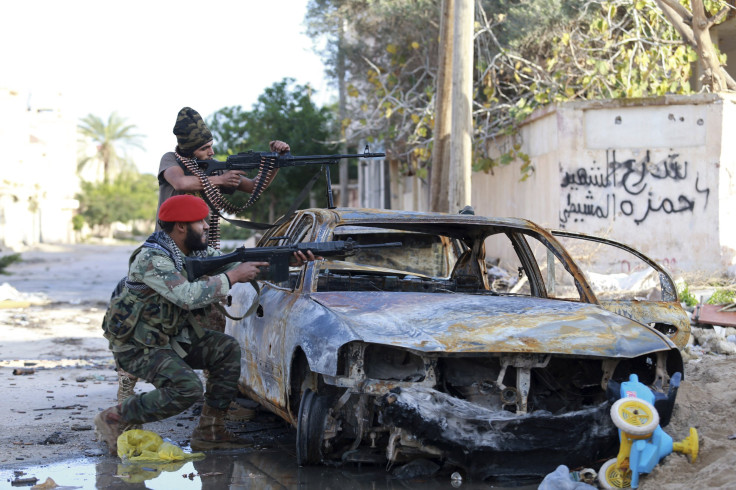Libyan Official Government, International Community Attempt To Isolate Libya Amid Growing Terrorism Threat

Almost four years after the revolution that ousted dictator Muammar Gadhafi, Libya has descended into such chaos that the last international airline flying into the country has pulled out, and the nation that started the bombing campaign against Gadhafi in 2011 is thinking of going back in.
The civil war has both boosted homegrown terrorists and flung open the borders for militants from across the region. As Libyan officials and various jihadist groups fight each other, the international community is scrambling to put the oil-rich country on lockdown.
Turkish Airlines announced Tuesday that it had suspended flights to the city of Misrata, the home base of many Islamist forces aligned with Libya Dawn, one of several armed factions ruling various chunks of Libya. Without this route, there is now no regular commercial air travel in and out of Libya, except from some Libyan carriers operating on an erratic schedule.
France announced on Monday that it is “ready” for a bombing campaign on the Libyan border to “contain the terrorism that took refuge there.” One of the country’s two governments vying for control also banned the entry of Syrians, Palestinians and Sudanese nationals in an attempt to curb terrorist infiltration.
"We've decided to ban nationals from Sudan, Syria and Palestine after the intelligence services and police established that some Arab countries are involved in undermining Libya's security and sovereignty," Interior Minister Omar al-Sanki told Reuters.
Al-Sanki is part of the internationally recognized House of Representatives (HOR), one of Libya’s two competing governments. In September, HOR Prime Minister Abdullah al-Thinni accused Sudan of providing weapons to Islamist opposition group Libya Dawn, which seized the capital of Tripoli this summer and announced its own government. Sudan denied the accusation.
HOR is aligned with the military forces of former army general Khalifa Hifter and controls parts of eastern Libya. Hifter launched a campaign to eradicate Libya’s Islamists this May, with his rhetoric including heavy accusations that Sudanese, Palestinians and Syrians were entering Libya to join one of its various militant groups. Libya is home to al-Qaeda-aligned Ansar al-Sharia, the Shura Council of the Youth of Islam, and the more moderate Martyrs of Abuslim Brigade, according to the BBC.
In the last few months, the port city of Darna has seen a sprinkling of militants who support the Islamic State group. The Shura Council openly declared support for the group also known as ISIS and last month ISIS caliph Abu Bakr al-Baghdadi announced that his self-declared caliphate had expanded to Libya.
The rise of jihadist groups in Libya has long been concerning to its neighbors. The U.S. accused Egypt and the United Arab Emirates of carrying out a series of airstrikes on militant-heavy areas of Libya in August, and now France and Turkey are also becoming worried.
French President François Hollande announced that France would carry out airstrikes on jihadists attempting to leave Libya through the southern border "every time they leave these places where they are hiding." France will not intervene unilaterally in Libya, as HOR has rejected any Western involvement. Airstrikes would target the militants once they left Libyan territory and entered Chad or Niger.
While these methods may trap terrorists, they leave few escape routes for civilians caught in the crossfire. Libya Body Count reports that as many as 50 civilians have been killed so far this year -- and with no way out, that number will only rise.
© Copyright IBTimes 2024. All rights reserved.






















